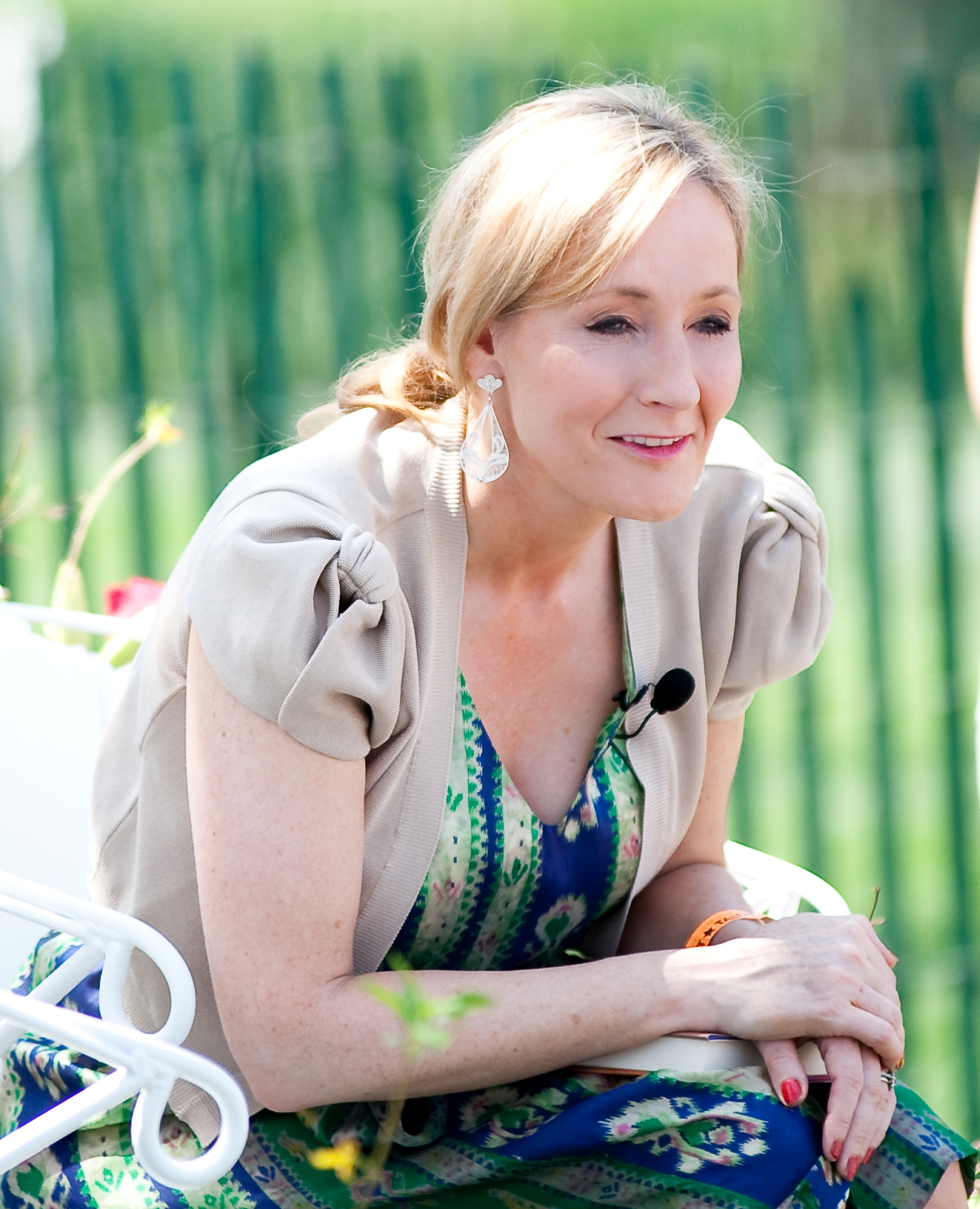|
 |
||
4. “Sometimes you have to get your writing done in spare moments here and there.”
If you’re a busy person, you may find that you can’t spare even an hour to write or brainstorm. This is when you have to use those infrequent quiet times for your writing enjoyment. Maybe it’s on the train to work, or during your lunch break, or while you’re supporting your child at his or her sport game, or while you’re in bed before you go to sleep.
5. “I never really think in terms of ingredients, but I suppose if I had to name some I'd say humor, strong characters, and a watertight plot. Those things would add up to the kind of book I enjoy reading myself. Oh, I forgot scariness--well, I never set out to make people scared, but it does seem to creep in along the way.”
A lot of aspiring writers think in terms of “ingredients.” They ask themselves, “What do I need to put in that will guarantee a great manuscript?” What works for Rowling is to not get mired down in such details. She writes what she enjoys in other novels. What do you enjoy? What makes your favorite books special to you? After figuring that out, try writing with those in mind.
6. "Firstly, you need to write something that a publisher would want to publish (it only takes one, but it might take a while to find them. If you are turned down by every single publisher in existence, you will have to consider the possibility that what you have written is not publishable). Next, you need to approach the publisher, either directly, or (which is advisable if you can manage it) by securing an agent who will act on your behalf. The best way to find agents' and publishers' addresses is to consult 'The Writer's and Artist's Yearbook', which is updated every year (Double-check that you are writing to the right person/people; don't, for example, send science fiction to a publisher of medical textbooks). Wait. Pray. This is the way Harry Potter got published."
Do I really need to explain this one?
7. “The five years I spent on Harry Potter and the Philosopher's Stone were spent constructing The Rules. I had to lay down all my parameters. The most important thing to decide when you're creating a fantasy world is what the characters CAN’T do. . . . You can tell with The Simpsons. It's a work of genius. You can tell that they've structured it in such a way that they're never at a loss for what their characters can and can't do. That's why they're so believable - even though they're little yellow people.”
My advice here is to use character worksheets. Before you even start writing, determine everything about your characters. Be as detailed as possible. The worksheets work to remind you who your characters are. Let’s say you want your leading heroine to be a talkative Valley Girl. Would it make sense to have her suddenly be quiet and stop using “like” all the time? Of course not, unless, of course, some major event happened to her to make her not be the carefree person she once was. But even then, some bits of her former self will shine. Perhaps she still uses “like” frequently, but not at the same level as before.
8. “I never really imagine a target audience when I'm writing. The ideas come first.”
This might be backward thinking for some people. Some believe they need to determine who their readers are, and craft a story that will appeal to them. I admit this can be very helpful (and excruciatingly important in the technical writing field). Rowling doesn’t do that, though. She goes with her ideas. If you’re the type of person who writes for a target audience, try writing the other way. See how it feels.
9. “It took me five years to work out this very long plot. On that train, I came up with lots of the characters you meet at the school. Loads and loads of detail, but not really the narrative. It’s as though, subconsciously, for years, I had been preparing for writing Harry Potter.”
I included this quote because I want to make it clear that writing isn’t easy. There is no right answer to how long writing a manuscript takes. Some people get inspired and can finish a book in a few weeks. Others have to work for several years. The point is don’t rush yourself. Work at the speed that’s comfortable to you. Don’t be afraid to put it down and not look at it again for another month or two.
10. “You can always tell if it's a good idea because you get a physical response to it, you get this sort of big leap of excitement.”
I have nothing to add.





















